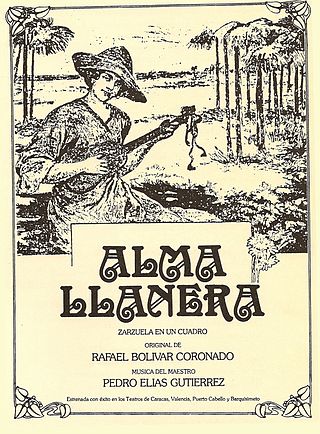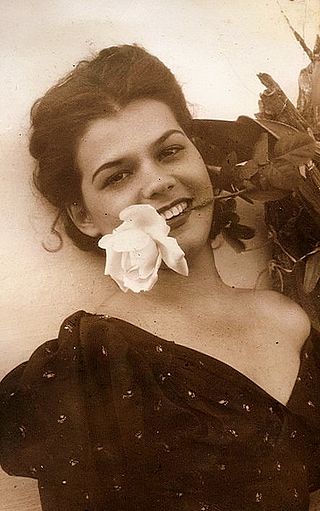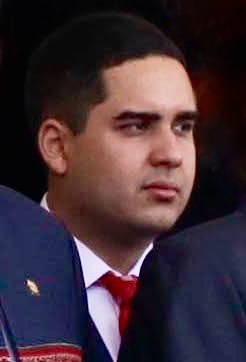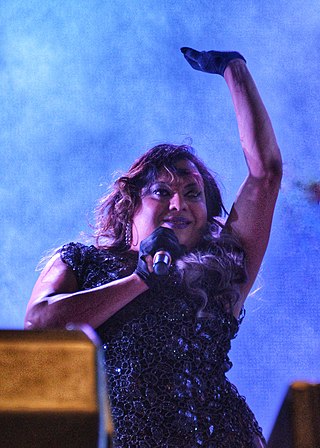
The Caribbean Series is an annual club tournament contested by professional baseball teams in Latin America. The series is normally played in February, after the various winter leagues have ended their national tournaments.

Several styles of the traditional music of Venezuela, such as salsa and merengue, are common to its Caribbean neighbors. Perhaps the most typical Venezuelan music is joropo, a rural form which originated in the llanos, or plains.

The Supreme Justice Tribunal is the highest court of law in the Bolivarian Republic of Venezuela and is the head of the judicial branch. As the independence of the Venezuelan judiciary under the regime of Nicolas Maduro is questioned, there have recently been many disputes as to whether this court is legitimate.

Ana Enriqueta Terán was a Venezuelan poet. She was one of the best-known Venezuelan poets, especially because of her peculiar wordplay. Terán has written in several publications and all her works are compiled in Casa de hablas (1991). She won the National Prize for Literature in 1989.
Venezuela does not recognize same-sex unions. In 2008, the Supreme Tribunal of Justice ruled that the Constitution of Venezuela neither prohibits nor requires the recognition of same-sex marriage. In January 2015, a lawsuit seeking to legalise same-sex marriage in Venezuela was filed with the Supreme Tribunal, which announced in April 2016 that it would hear the case, though no decision has been made as of June 2023. On 24 February 2022, a deputy of the opposition Cambiemos Movimiento Ciudadano party introduced a same-sex marriage bill to the National Assembly.

Marjorie Lissette de Sousa Rivas is a Venezuelan actress, model, and singer. She is known worldwide for her villainous roles in telenovelas.

Pedro Sánchez Pérez-Castejón is a Spanish politician who has been Prime Minister of Spain since June 2018. He has also been Secretary-General of the Spanish Socialist Workers' Party (PSOE) since June 2017, having previously held that office from 2014 to 2016. Moreover, Sánchez is the current President of the Socialist International, having been elected to that position in November 2022.
Efecto Cocuyo is a Venezuelan journalism outlet devoted to independent media. The website was co-founded in January 2015 by Laura Weffer, former director of Venezuelan newspaper Diario 2001, Luz Mely Reyes, and Josefina Ruggiero, former content director of Cadena Capriles— award-winning journalists.

Margarita Carrera Molina was a Guatemalan philosopher, professor and writer. She was a member of the Academia Guatemalteca de la Lengua and the 1996 laureate of the Miguel Ángel Asturias National Prize in Literature.

Nicolas Ernesto Maduro Guerra is a Venezuelan politician and the son of the President of Venezuela, Nicolás Maduro. He was appointed as Head of the Corps of Special Inspectors of the Presidency and Coordinator of the National Film School of Venezuela by his father. He was also elected by the PSUV party congress in 2014 to be the delegate of El Valle Capital District.

Foro Penal is a Venezuelan human rights organization that provides legal assistance pro bono to people subject of arbitrary detentions and their relatives. The organization is composed of regional coordinators for each state in Venezuela, pro bono lawyers on a national level and a network of over five thousand volunteers, non-lawyer activists, known as "active defensors".

Alicia Victoria Arango Olmos is a Colombian politician and businesswoman, who served as the Minister of Interior and the Minister of Labor of Colombia. She was previously the private secretary of President Álvaro Uribe's Casa de Nariño and the nation's ambassador to the United Nations at Geneva.
The 2018 Primera División season, officially Liga de Fútbol Profesional Venezolano or Liga FUTVE, was the 37th professional season of Venezuela's top-flight football league. Monagas were the defending champions, but did not qualify to the Serie Final, after being eliminated in the regular season of the Torneo Apertura and by Caracas in the quarter-finals of the Torneo Clausura.
The 2019 Primera División season, officially Liga de Fútbol Profesional Venezolano or Liga FUTVE, was the 38th professional season of Venezuela's top-flight football league. Zamora were the defending champions, but in the Torneo Apertura they were knocked out by Mineros in the quarter-finals and in the Torneo Clausura they failed to advance to the knockout stage. The champions were Caracas, who won the Torneo Clausura by defeating Deportivo Táchira in the final and then went on to beat Apertura winners Estudiantes de Mérida in the Serie Final on penalties to claim their twelfth league title.

Yren Ailyn Rotela Ramirez is a Paraguayan activist for the rights of LGBT people and sex workers.
Alena Douhan of Belarus is the United Nations Special Rapporteur on the negative impact of the unilateral coercive measures on the enjoyment of human rights, as 25 March 2020. When appointed, she was a professor of International Law and the Director of the Peace Research Center at the Belarusian State University.
Susana Raffalli is a Venezuelan nutritionist and activist. She received a number of awards including the 100 Women (BBC) award in 2020 for her work in alleviating hunger in Venezuela and in particular during the corona virus pandemic.
Antonio "Tony" Franco López is a Venezuelan football manager, currently in charge of Monagas.
Humberto Prado is a Venezuelan lawyer and activist. He is the founder and served as director of the Venezuelan Observatory of Prisons (OVP). In 2019, during the presidential crisis in Venezuela, he was appointed by Juan Guaidó as Presidential Commissioner for Human Rights.









